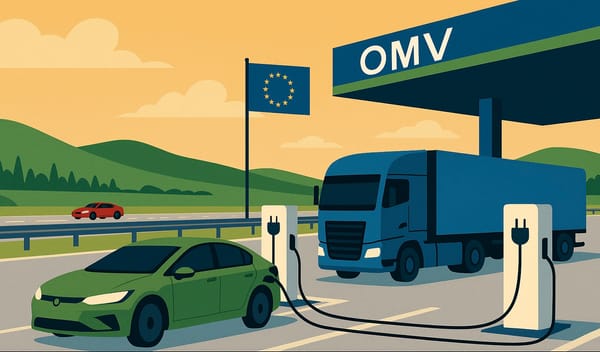
New EC report assesses rule of law across CEE
The new report on rule of law and governance by the European Commission (EC) gives a mixed picture on Central and Eastern Europe (CEE) anti-corruption efforts, judicial independence, media freedom, and legislative practices. The EC’s Rule of Law Report 2024, its 5th, included assessments of developments in Bulgaria, Czechia, Estonia, Croatia, Latvia, Lithuania, Poland, Romania, Hungary, Austria, Slovenia, Slovakia, and Serbia, included for the first time along with three other Balkan countries.
The EC writes that “since its first publication in 2020, the report has become a true driver of positive reforms: Two thirds (68%) of the recommendations issued in 2023 have been, fully or partially, addressed.” However, the EC adds, “in some member states systematic concerns remain and the situation has further deteriorated. These concerns are addressed in the recommendations of this year’s report.”
Judicial independence and reform
Judicial independence remains a critical concern across CEE, with varying degrees of progress. Bulgaria has seen a notable enhancement in judicial independence with new frameworks for appointments and disciplinary actions. However, the efficiency of judicial proceedings remains a challenge, according to the report.
Conversely, in Slovakia, recent criminal law reforms, particularly the dissolution of the Special Prosecutor’s Office, have raised serious concerns about the erosion of judicial independence. Fast-tracked legislative procedures and the dismissal of Judicial Council members have exacerbated these concerns, with the Constitutional Court intervening to suspend parts of the reform temporarily.
In Slovenia, reforms aimed at increasing judicial independence include draft amendments to the Judicial Council Act and improvements in judicial appointments. However, issues persist, such as the insufficient safeguards for dismissals and concerns over the adequacy of disciplinary frameworks.
Anti-corruption measures
Anti-corruption strategies across these nations reflect a spectrum of achievements and setbacks. Romania and Bulgaria have seen incremental progress with enhanced anti-corruption frameworks and increased transparency in political finance. Bulgaria’s new anti-corruption measures and Romania’s ongoing efforts to strengthen the judiciary are notable.
In Hungary, the dissolution of anti-corruption bodies and the expansion of prosecutorial powers have raised concerns about the effectiveness of corruption investigations, particularly in high-level cases.
In contrast, Poland has made strides in increasing transparency and combating corruption, though it faces ongoing challenges related to judicial independence and political influence. Czechia has also made progress, focusing on improving the effectiveness of anti-corruption measures while striving to maintain institutional integrity.
Media freedom, civil society
Media freedom and the protection of journalists are pressing issues across the region, the EC writes. In Hungary, the expansion of media regulator competences is marred by concerns over political influence and resource limitations.
In Slovenia, there have been strides in improving media transparency and addressing journalists’ concerns, although online harassment remains a significant issue. Estonia, Latvia, and Lithuania have demonstrated commitment to media freedom, with advancements in regulatory frameworks and the protection of journalists.
In Poland, media freedom is under scrutiny, with ongoing challenges related to political interference and the need for greater transparency in state advertising. Bulgaria and Romania have seen improvements in media ownership transparency and journalist protection, but challenges persist, particularly regarding the safety and working environment for journalists.
Legislative processes, public consultation
The effectiveness of legislative processes and public consultation varies widely. In Slovakia, fast-tracked legislative procedures have raised concerns about the lack of thorough public consultation. Similarly, in Hungary, the use of urgent parliamentary procedures has drawn criticism for bypassing comprehensive stakeholder engagement.
In contrast, Croatia and Slovenia have made progress in enhancing public consultation mechanisms and reducing the use of expedited legislative processes. Czechia has also shown improvement, with more transparent and inclusive legislative practices.
The EC’s report underscores significant progress and ongoing challenges in rule of law and governance across CEE. The varying degrees of success in judicial independence, anti-corruption efforts, media freedom, and legislative practices reflect complex political landscapes in each country.
While there are notable advancements in several countries, such as Romania and Bulgaria’s improvements in anti-corruption measures and Slovenia’s efforts to enhance media transparency, the report also reveals persistent issues. Fast-tracked legislative processes and political interference in media and judiciary continue to challenge democratic norms and the rule of law.
Political dynamics play a crucial role in shaping the effectiveness of reforms and governance structures. For instance, Hungary’s political maneouvres and Slovakia’s recent judicial reforms highlight how national politics can impact rule of law and institutional integrity. Similarly, media freedom concerns in Poland and Hungary underscore the influence of political pressures on press independence.
Addressing these challenges requires a concerted effort both at national- and EU-level. Strengthening judicial independence, enhancing anti-corruption frameworks, safeguarding media freedom, and ensuring transparent legislative processes are essential for reinforcing democratic governance in the region. The EU’s ongoing commitment to these values is critical for fostering stability and prosperity across CEE, the report concludes.





